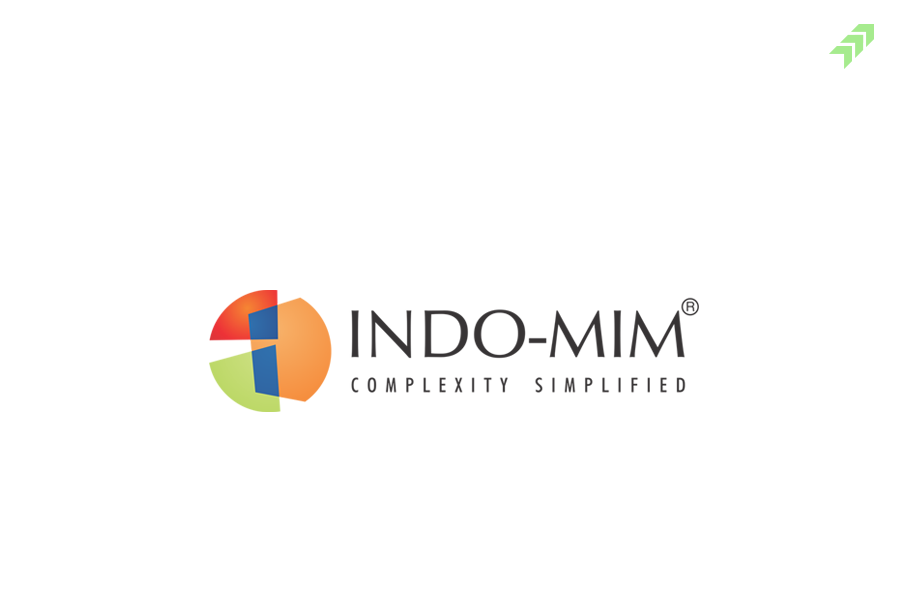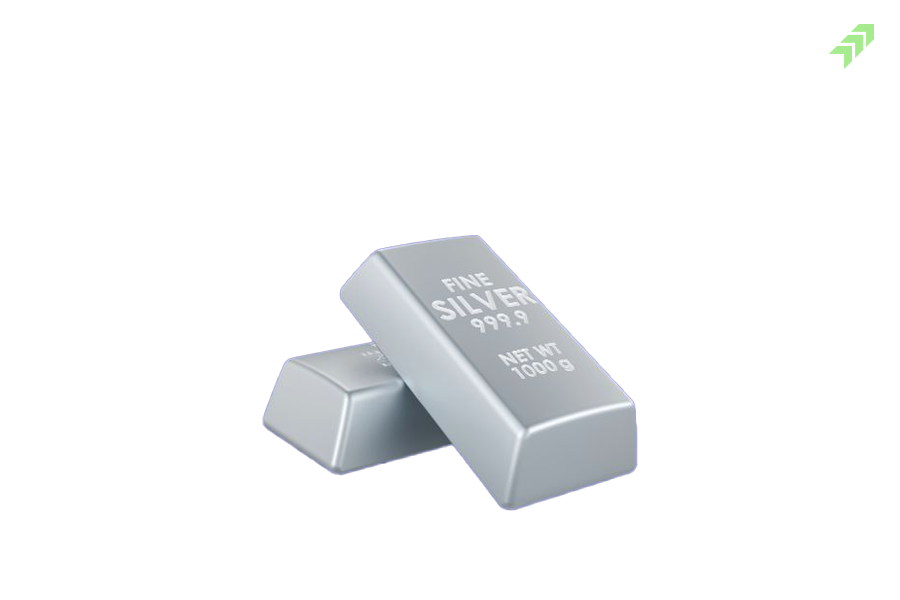Introduction to the world of brokerage charges
When it comes to trading in the stock market, choosing the right broker is crucial. But, with so many options available, it can be overwhelming to decide which one to go with. One factor that plays a significant role in the decision-making process is the brokerage charge. As a trader, you want to ensure that you are getting the best deal possible, with the lowest brokerage charges for F&O and option trading. In this article, we will decode the mystery of the lowest brokerage charges and provide you with the information you need to make an informed decision.
The importance of selecting the right broker
Choosing the right broker is crucial for any trader, whether you are a beginner or a seasoned investor. The broker you choose will have a significant impact on your trading experience as well as your overall success in the market. Here are a few reasons why selecting the right broker is essential:
1.) Cost-Efficiency: As mentioned in the previous section, brokerage charges play a significant role in your trading activity. Opting for a broker with the lowest brokerage charges can save you a substantial amount of money in the long run.
2.) Platform and Tools: A good broker will provide you with a user-friendly platform and advanced tools that can enhance your trading experience. These tools can range from real-time market data, charting tools, research reports, and technical analysis indicators.
3.) Customer Support: A reliable broker will offer excellent customer support to assist you with any issues or queries you may have. Having a responsive support team can be invaluable, especially during critical market situations.
4.) Security and Trustworthiness: Since you will be entrusting your funds and sensitive personal information to the broker, it is crucial to choose a broker that is licensed, regulated, and has a reputable track record. This will ensure that your investments are secure and that you are protected against fraud or misuse of your account. In the next section, we will explore some key factors to consider when choosing a broker, beyond just the lowest brokerage charges. Stay tuned!
Understanding the different types of brokerage charges
When it comes to trading, it’s important to understand the various types of brokerage charges. While the lowest brokerage charges may seem enticing, it’s vital to examine the details to avoid any surprises or hidden costs down the line.
a) Brokerage Fee: This is the primary charge that brokers levy for executing trades on your behalf. It’s typically a percentage of the trade value or a fixed fee per trade. While opting for a broker with the lowest brokerage fee might seem like the best choice, it’s essential to consider other factors, such as the quality of services provided.
b) Account Maintenance Fee: Some brokers might charge an annual or monthly fee for maintaining your trading account. It’s crucial to evaluate whether this fee is reasonable based on the services and benefits offered by the broker.
c) Other charges: Brokers may also have additional charges such as transaction fees, service tax, regulatory fees, and stamp duty. These charges can vary depending on the type of investment instrument and the exchange on which you trade. It’s important to consider these charges when evaluating the overall cost-efficiency of a broker.
Factors to consider when choosing a broker based on brokerage charges
Now that we have shed light on the various types of brokerage charges, let’s delve into the factors one should consider when choosing a broker based on these charges.
a) Services and support: While low brokerage charges might be appealing, it’s important to remember that quality of services and customer support are equally essential. A broker with the lowest charges might compromise on the support they provide, which can greatly impact your trading experience. Look for brokers that offer a balance between competitive charges and excellent customer service.
b) Trading frequency: If you are an active trader who executes multiple trades on a regular basis, opting for a broker with a flat fee per order might be more cost-effective than a percentage-based fee. Analyze your trading patterns and choose a broker that aligns with your trading frequency.
c) Research and analysis tools: Another crucial factor to consider is the research and analysis tools provided by the broker. Access to accurate and comprehensive market information can significantly enhance your trading decisions. Some brokers offer these tools as part of their brokerage package, while others might charge extra for such services. Evaluate the value these tools bring and factor in any additional costs. Moneysukh will provide premium research services to all clients at zero cost.
d) Transparency and hidden costs: While it’s important to compare brokerage charges, don’t forget to look for transparency in a broker’s fee structure. Some brokers may lure you in with low charges but then surprise you with hidden costs or additional fees. Read the fine print, and ensure that the broker you choose is upfront about all the charges involved.
e) Reputation and security: Choosing a broker with a good reputation in the industry is crucial. Look for reviews and feedback from other traders to gauge the reliability and trustworthiness of a broker. Additionally, ensure that the broker is registered and regulated by the appropriate regulatory bodies to protect your investments and trading activities.
Taking all these factors into account will help you make an informed decision when choosing a broker based on brokerage charges.
How to compare and analyze brokerage charges
Now that we have discussed the factors to consider when choosing a broker based on brokerage charges, let’s dive deeper into how to compare and analyze these charges. This will help you make an informed decision that suits your trading style and financial goals.
a) Create a comparison chart: Start by creating a comprehensive comparison chart that includes all the brokers you are considering. List down the different types of brokerage charges they have, such as a flat fee per trade, a percentage-based fee, annual maintenance charges, or any other applicable charges.
b) Calculate costs for your trading pattern: Review your trading patterns and estimate the number of trades you are likely to execute within a specific period, such as a month or a year. Use this information to calculate the total costs incurred by each broker based on their brokerage charges. This exercise will help you understand how these charges will impact your trading costs in the long run.
c) Consider any discounts or offers: Some brokers may offer discounts or promotional offers on their brokerage charges, especially for new customers or high-volume traders. Take note of any such offers and factor them into your analysis. However, ensure that the discounts are not temporary and that the broker’s regular charges align with your expectations.
d) Assess additional services and features: While comparing brokerage charges, don’t forget to consider the additional services and features provided by each broker. These may include access to research and analysis tools, educational resources, market insights, or personalized assistance. Evaluate the value these services bring and weigh them against the brokerage charges.
e) Seek expert opinions: It is always helpful to seek advice from experienced traders or financial advisors who can provide insights into the different brokers and their charges. They may have first-hand experience with certain brokers and can offer valuable perspectives that can assist your decision-making process. By following these steps, you will be able to compare and analyze brokerage charges effectively. Remember, the goal is to find a balance between cost-effectiveness and quality of service.
Tips for negotiating lower brokerage charges
When it comes to choosing the right broker with the lowest brokerage charges, negotiating can play a significant role in securing a better deal. Here are some tips to help you negotiate lower brokerage charges:
a) Research the market: Before you start negotiating, gather information about the prevailing brokerage charges in the market. This will give you an idea of the standard rates and help you understand what kind of discount you can aim for.
b) Highlight your trading activity: If you are a high-volume trader, make sure to emphasize this during your negotiation. Brokers are more likely to offer lower brokerage charges to traders who generate a higher commission for them.
c) Bundle services: Explore the possibility of bundling additional services with your trading account. By opting for services such as research reports or personalized advice, you may be able to negotiate lower brokerage charges.
d) Show loyalty: If you have been trading with the same broker for a while, use your loyalty as leverage during negotiations. Highlight your commitment and express your willingness to continue trading with them if they can offer lower charges.
e) Be willing to walk away: Negotiations involve a certain degree of give and take. If the broker seems unwilling to budge on the brokerage charges, be prepared to explore other options. Sometimes, the threat of losing a customer can motivate them to reconsider their initial offer.
Remember, negotiating lower brokerage charges is not guaranteed, but it’s worth a try.
The significance of research and due diligence in selecting a broker
In the world of investing, research and due diligence are crucial aspects to consider when selecting a broker. While low brokerage charges are undoubtedly important, they should not be the sole determining factor. One key aspect to look for when evaluating brokers is their research capabilities. A reputable broker should have a team of experienced analysts who provide robust research reports and market insights. This can be invaluable in making informed investment decisions. Additionally, it’s essential to assess the broker’s track record and reputation. Look for reviews and feedback from other investors to get an idea of their reliability, customer service, and overall performance. Furthermore, it’s important to be aware of any hidden costs that may arise. Some brokers may have additional fees for account maintenance, fund transfers, or inactivity. These costs can significantly impact your overall profitability and should be factored into your decision-making process. By conducting thorough research and due diligence, you can ensure that you choose a broker who not only offers competitive brokerage charges but also provides the necessary tools, resources, and transparency to support your investment journey.
Final Verdict: Finding the perfect broker with optimal brokerage charges
In conclusion, when choosing the right broker, it is important to look beyond just the lowest brokerage charges. While low costs are appealing, they should not be the sole determining factor in your decision-making process. Instead, focus on evaluating the broker’s research capabilities, track record, reputation, and any hidden costs that may arise. By conducting thorough research and due diligence, you can ensure that you choose a broker who not only offers competitive brokerage charges but also provides the necessary tools, resources, and transparency to support your investment journey.
Remember, the right broker should align with your investment goals, risk tolerance, and preferences.
Get free equity delivery and a fixed fee of ₹10 per order for intraday and F&O transactions with Moneysukh. For more details, please log on to https://www.moneysukh.com/Pricing.
Types of brokerage charges:
| Equity delivery | Equity intraday | Equity futures | Equity options | |
| Brokerage | 2.5 % or Rs. 10 per executed order whichever is lower | 2.5% or Rs. 10 per executed order whichever is lower | 2.5% or Rs. 10 per executed order whichever is lower | Flat Rs. 10 per executed order |
| STT/CTT | 0.1% on buy & sell | 0.025% on the sell side | 0.0125% on sell side | 0.0625% on sell side (on premium) |
| Transaction charges | NSE: 0.00325% | NSE: 0.00325% | NSE: 0.0019% | NSE: 0.05% (on premium) |
| BSE: 0.00325% | BSE: 0.00325% | NSE: 0.05% (on premium) | ||
| GST | 18% on (brokerage + transaction charges) | 18% on (brokerage + transaction charges) | 18% on (brokerage + transaction charges) | 18% on (brokerage + transaction charges) |
| SEBI charges | ₹10 / crore | ₹10 / crore | ₹10 / crore | ₹10 / crore |
| Stamp charges | 0.015% or ₹1500 / crore on buy side | 0.003% or ₹300 / crore on buy side | 0.002% or ₹200 / crore on buy side | 0.003% or ₹300 / crore on buy side |
Charges Explained
Securities / Commodities transaction tax
Tax by the government when transacting on the exchanges. Charged as above on both buy and sell sides when trading equity delivery. Charged only on the selling side when trading intraday or on F&O.
STT/CTT can be a lot more than the brokerage we charge. It’s important to keep a tab.
Transaction/Turnover Charges
Charged by exchanges (NSE, BSE, MCX) on the value of your transactions.
BSE has revised transaction charges in the XC, XD, XT, Z, and ZP groups to Rs. 10,000 per crore w.e.f. January 1, 2016. (XC and XD groups have been merged into a new group X w.e.f. 01.12.2017.)
BSE has revised transaction charges in the SS and ST groups to Rs. 1,00,000 per crore of gross turnover.
Call & trade
Additional charges of ₹50 per order for orders placed through our support/dealing desk.
Stamp charges
Stamp charges by the Government of India as per the Indian Stamp Act of 1899 for transacting in instruments on the stock exchanges and depositories.
NRI brokerage charges
₹100 per order for futures and options.
For a non-PIS account, 0.5% or ₹100 per executed order for equity (whichever is lower).
For a PIS account, 0.5% or ₹200 per executed order for equity (whichever is lower).
₹500 + GST as yearly account maintenance charges (AMC) charges.
GST
Tax levied by the government on the services rendered. 18% of brokerage + transaction charges
SEBI Charges
Charged at ₹10 per crore by the Securities and Exchange Board of India for regulating the markets.
DP (depository participant) charges
₹ 13/- per ISI
* (*NSDL and CDSL charges shall be charged additionally as actual.)
Pledging charges
₹30 + GST per pledge request.
AMC (Account Maintenance Charges)
₹300/year + GST (free for the first year)
Corporate action order charges
₹20 plus GST will be charged for OFS, buyback, takeover, and delisting orders placed through the Moneysukh platform.
Off-market transfer charges
₹25 or 0.03% of the transfer value (whichever is higher).
Physical CMR request
The first CMR request is free. ₹20 + ₹100 (courier charge) + 18% GST for subsequent requests.
Payment gateway charges
As per the actual charges by payment gateway (Rs. 9 + GST for net banking transfers and Rs. 3 + GST for all transfers done via UPI),
Delayed payment charges
Negative balance in your account–
0.05% per day, or 18% p.a., will be charged as interest on the debit balance.
Over-utilization of non-cash equivalent collateral margin–
Exchanges stipulate that for overnight F&O positions, 50% of the margin needs to compulsorily come in cash or cash equivalent collateral, and the remaining 50% can be in terms of non-cash collateral margin.
If you don’t have sufficient cash margin and the shortfall is funded by non-cash collateral, there will be a delayed payment charge of 0.035% per day, or 12.5% p.a., on the shortfall in the cash margin requirement.
Charges for account opening
| Type of account | Equity (for trades on Equity, F&O and Currency) | Equity (for trades on Equity, F&O and Currency) and Commodity (MCX) |
| Online account | ₹ 0.00 | ₹ 0.00 |
| Offline account | ₹ 400 | ₹ 600 |
| NRI account (offline only) | ₹ 500 | N/A |
| Partnership, LLP, HUF, or Corporate accounts (offline only) | ₹ 500 | ₹ 800 |


















No comment yet, add your voice below!